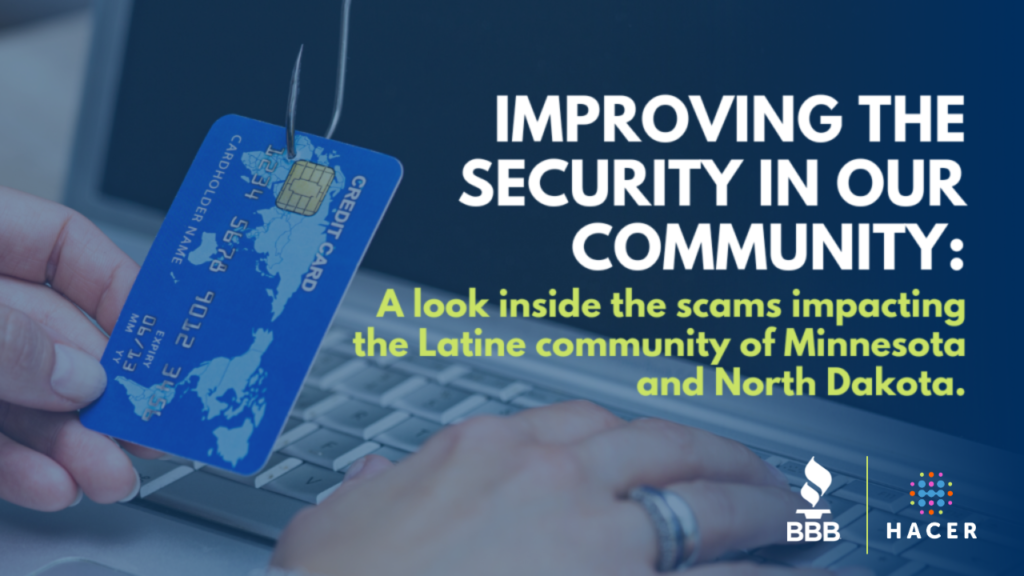
Executive Summary
Background
The goal of this descriptive research study was to better understand the experiences with scams of the Latine community in Minnesota and North Dakota. The primary questions this study aims to answer are:
1. What types of scams are targeting those in the community?
2. How worried are community members about becoming a victim of a scam?
3. How has the community been victimized by scams and lost money in the past?
4. What barriers prevent the Latine community from accessing scam prevention and education?
5. Which medium would be the preferred method for the community to receive education on how to
avoid future scams and monetary loss?
6. What could BBB do to better inform the community on scam and fraud prevention?
BBB, looks to further extend their reach to the Latine community to offer resources on scam and fraud prevention and continue to aid those who have been scammed.
Methods
In collaboration with BBB, HACER conducted two focus groups with people living in the Twin Cities area that either knew someone who had been a victim of a scam or were victims themselves. The focus groups were conducted in Spanish and consisted of participants that identified as Hispanic and/or Latine. Participants received a $50 gift card for their participation. In addition, HACER conducted five in-depth interviews in both English and Spanish with those who identified as Hispanic and/or Latine that either knew someone who had been a victim of a scam or were victims themselves, and who lived outside of the 7-county Twin Cities metro area (Greater Minnesota) or North Dakota. Participants received a $50 gift card for their participation. Lastly, HACER distributed an online and paper survey statewide in Minnesota and North Dakota to get input from a larger audience on the perceptions and experiences with scams among the Latine community. Eligible participants received a $10 gift card for their participation in the survey.
Findings
Demographics
Focus groups
A total of 18 participants participated in the focus groups. All of the participants identified as Hispanic/Latine, the majority (n=12) of the participants identified as female, and all lived within the 7-county Twin City metro area. Of the participants, 22% had only been a victim of a scam (n=4), 22% had only known of others that had been victims of a scam, but had not been victims themselves (n=4), and 56% had both been a victim of a scam and knew other victims of scams (n=10).
In-depth Interviews
A total of five individuals were eligible to participate in the in-depth interviews. All participants identified as Hispanic and/or Latine and the majority (n=4) of the participants identified as female. Lastly, these participants were located in different demographic regions of Minnesota, Southeast, Southwest Central, South Central, Southwest Minnesota, and North Dakota.
